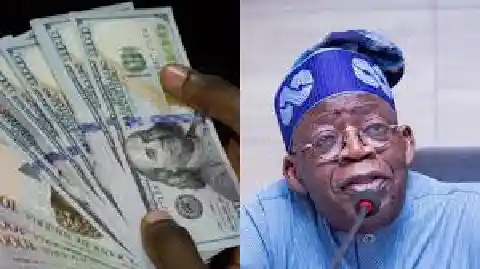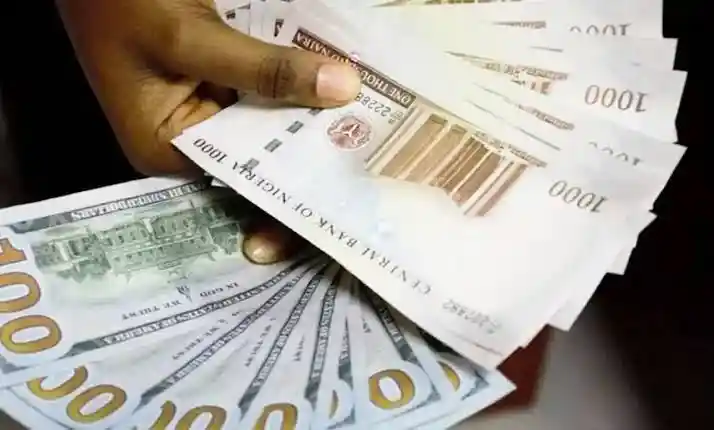The Dollar to Naira exchange rate is one of the most important economic indicators for Nigerians and businesses operating in the country. As of Saturday, February 15, 2025, the exchange rate stood at approximately 1 USD to 1,511.88 NGN, reflecting ongoing fluctuations in Nigeria’s currency value. In this blog post, we’ll explore the latest exchange rates, factors driving fluctuations, and how businesses and individuals can stay informed about future changes.
Latest Dollar to Naira Exchange Rate Trends
On February 15, 2025, the exchange rate between the U.S. Dollar (USD) and the Nigerian Naira (NGN) was 1 USD to 1,511.88 NGN. This represents a slight stabilization compared to the fluctuations seen in the previous week.
During the past week, the exchange rate experienced highs and lows:
- Highest rate: 1 USD to 1,569.12 NGN on February 10, 2025
- Lowest rate: 1 USD to 1,531.46 NGN on February 14, 2025
It’s important to note that exchange rates may vary depending on whether they are obtained through official markets or parallel (black market) channels.
Black Market Exchange Rates
In Nigeria, the black market exchange rate is often higher than the official rate due to factors like currency scarcity and increased demand for foreign exchange. On February 14, 2025, black market currency dealers in Abuja’s Zone 4 market reported buying dollars at 1,545 NGN and selling at 1,555 NGN. This difference highlights the disparity between the official and parallel markets.
Government Projections and Policies
The Nigerian government has made efforts to stabilize the Naira through policy interventions. In the 2025 budget announced in November 2024, the government projected an exchange rate of 1,400 NGN to 1 USD—a rate stronger than the official rate of 1,655 NGN at that time.
This projection was made in response to inflationary pressures and rising global oil prices, which have historically influenced Nigeria’s foreign exchange reserves. However, despite these efforts, the Naira has remained under pressure due to several economic factors.

Factors Affecting the Naira’s Exchange Rate
Several factors contribute to the fluctuation of the Naira’s exchange rate:
- Oil Prices:
Nigeria is heavily dependent on oil exports, which account for over 80% of the country’s foreign exchange earnings. Fluctuations in global oil prices directly impact the Naira’s stability. - Foreign Exchange Reserves:
The level of Nigeria’s foreign exchange reserves determines the Central Bank of Nigeria’s (CBN) ability to intervene in the currency market. Lower reserves limit the CBN’s ability to stabilize the Naira. - Inflation:
Rising inflation weakens the purchasing power of the Naira and contributes to currency depreciation. - Demand for Foreign Currency:
The demand for U.S. dollars in Nigeria remains high due to import dependency and capital flight, putting additional pressure on the Naira.
Impact on Businesses and Individuals
The fluctuating exchange rate affects both businesses and individuals in Nigeria:
- For Businesses: Companies that rely on imported goods or raw materials face higher costs, which may lead to increased prices for consumers. Export-oriented businesses, however, may benefit from a weaker Naira, as their goods become more competitive in international markets.
- For Individuals: Travelers, students studying abroad, and families receiving remittances may experience challenges due to the fluctuating value of the Naira. Saving in foreign currencies has also become more popular among Nigerians looking to preserve the value of their assets.
How to Stay Updated on Exchange Rate Changes
Given the Naira’s frequent fluctuations, staying informed is crucial. Here are some tips to help you stay up to date:
- Monitor Trusted Currency Exchange Platforms:
Websites like Exchange Rates and Wise provide real-time updates on exchange rate changes. - Central Bank Updates:
The Central Bank of Nigeria (CBN) regularly publishes official exchange rate data and policy updates on its website. - Financial News Outlets:
News organizations and financial analysts frequently report on the latest currency trends and government policies affecting the exchange rate. - Currency Exchange Services:
If you are planning to exchange money, check rates at multiple currency exchange providers, as rates may vary depending on the provider.
Government’s Role in Stabilizing the Exchange Rate
The Nigerian government and the Central Bank of Nigeria have introduced various measures to stabilize the exchange rate. These include:
- Foreign Exchange Auctions: The CBN periodically conducts foreign exchange auctions to increase dollar supply in the market.
- Capital Control Measures: Policies to limit dollar demand for certain imports and services aim to reduce currency outflows.
- Monetary Policy Adjustments: The CBN’s interest rate decisions can influence currency stability by controlling inflation and investment flows.
Despite these measures, global economic factors and domestic challenges continue to impact the Naira’s value.
Looking Ahead
The future of the Dollar to Naira exchange rate remains uncertain, with several factors at play. While government efforts may bring temporary stability, addressing the underlying structural issues in Nigeria’s economy—such as diversification from oil dependency, reducing inflation, and boosting foreign reserves—will be critical for long-term stability.
For individuals and businesses, understanding the factors influencing exchange rate changes and staying informed about market trends can help mitigate the impact of currency fluctuations.
Also Read : Dollar to Naira Exchange Rate Today – Thursday, January 30, 2025 (Black Market ; CBN Rates)
Final Thoughts
As of February 15, 2025, the Dollar to Naira exchange rate reflects the complex dynamics of Nigeria’s economy. Whether you are a business owner, student, or traveler, staying informed about exchange rate changes is essential in today’s volatile economic environment. By leveraging reliable information and monitoring government policies, you can better navigate the challenges posed by currency fluctuations in Nigeria.
For more updates on exchange rates, financial trends, and economic policies, stay tuned to our blog.






